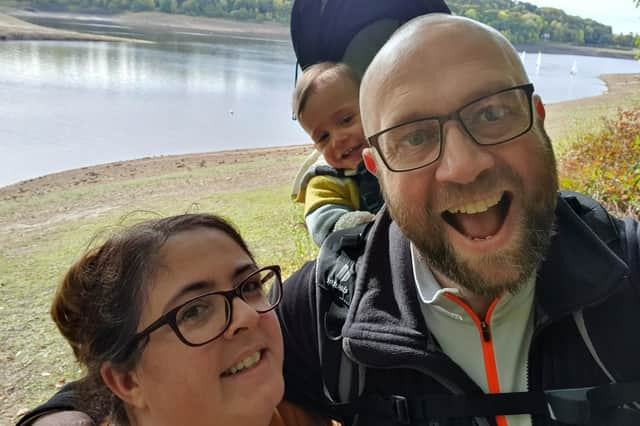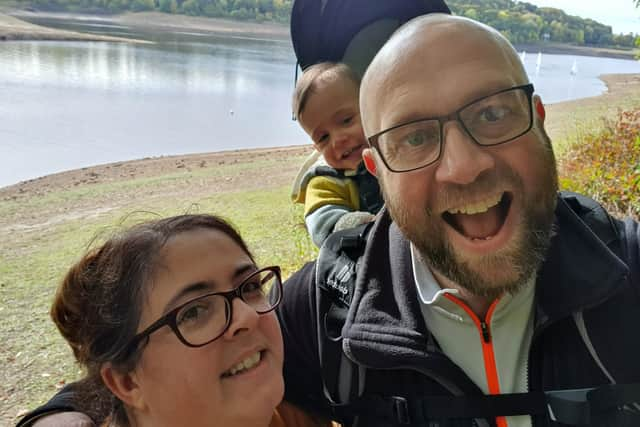Sheffield mum died of "multiple" blood clots on her brain - which she'd been told was a migraine


A Sheffield mother died in an operating theatre after deadly blood clots developed on her brain, an inquest heard.
Natasha Hewitt, 35, died in December last year in hospital, having been a walk-in centre to report a week of headaches. At the time, after a full examination she was told she had a left ear infection.
Advertisement
Hide AdAdvertisement
Hide AdToday (21 September) an inquest into her death began at Sheffield Medico-Legal Centre, where staff from Sheffield Teaching Hospitals NHS Foundation Trust gave evidence about Natasha's deterioration and eventual death.


After her condition worsened, to the point where she was unable to stand up without feeling dizzy, she was admitted to hospital on December 14. The inquest heard how a CT scan found numerous blood clots on her brain, and action was taken to halt and remove them.
Professor Siva Nair was the on-call neurological consultant at the time of her admission.
He said: "Natasha had been consulted by a GP about her headaches and was told it was a migraine, but her condition worsened. In hospital she had a scan on her brain that showed evidence of thrombosis.
Advertisement
Hide AdAdvertisement
Hide Ad"Doctors continued with medication to prevent the worsening of the clots while we prepared for removal. A thrombectomy resulted in the partial clearing in some of the veins - our plan was that if she didn't show improvements we would perform a craniotomy, removing part of the skull to relieve the pressure.
"The family was told she might not survive it, and even if she did she would have significant brain damage and disability - Nick [her husband] urged us to do everything we could to save her."
Professor Nair added that during her hospital stay, Natasha was placed on a blood thinner called heparin.
An emergency hospital transfer was requested for Natasha, but transport didn't arrive for an hour. Professor Nair told the inquest this was down to how busy the service was that day, but that delay would not have had a significant impact on her situation. In the courtroom, her husband Nick thanked Professor Nair for his efforts to save his late wife. She died on December 17.
Advertisement
Hide AdAdvertisement
Hide AdNatasha had a history of blood clots, having suffered with one in her placenta during her pregnancy in 2021.
Dr Rhona Maclean, a consultant haematologist, told the inquest that it seemed likely the fatal blood clot did originate in the brain, rather than necessarily being related to the treatment she received in 2021.
Treatment through blood thinning medicine is standard practice, she added, and if she had started the treatment earlier before her hospital admission it "would likely be more effective".
"The majority make a good recovery," she said. "The outcome could have been different."
Advertisement
Hide AdAdvertisement
Hide AdSpeaking previously to The Star, husband Nick said: "The last time I saw Natasha open her eyes was when she was transferred. We hoped and prayed that she would pull through but sadly she didn’t.
"We got to spend our last final moments together. It was absolutely awful feeling her hand go cold and the colour in her face change, I wouldn’t wish it upon anyone."
Through lawyers at Irwin Mitchell, Natasha's death is also being investigated for medical negligence.
The inquest is set to continue tomorrow.
Comment Guidelines
National World encourages reader discussion on our stories. User feedback, insights and back-and-forth exchanges add a rich layer of context to reporting. Please review our Community Guidelines before commenting.
